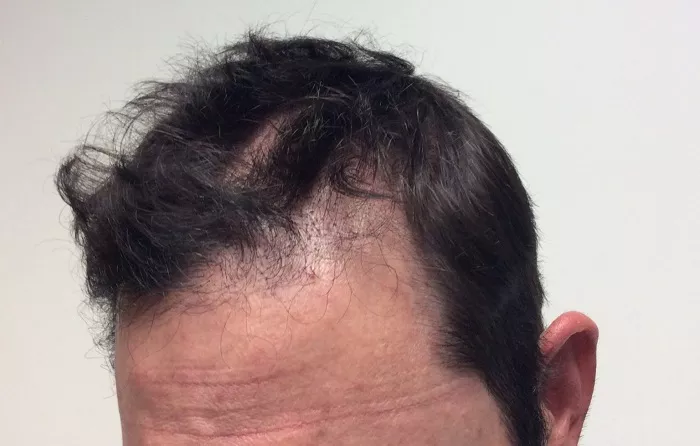Hair transplant surgery is a common procedure that can help to restore hair growth in individuals who suffer from hair loss. While the procedure is generally safe and effective, patients may have concerns about the possibility of experiencing hair loss after the transplant. In this article, we will explore whether it is possible to suffer from hair loss after hair transplant surgery and what patients can do to prevent it.
Can You Suffer From Hair Loss After Hair Transplant Surgery?
It is possible for patients to experience hair loss after hair transplant surgery, but this is generally a temporary side effect and should subside within a few weeks. This is known as “shock loss” and occurs when the newly transplanted hair follicles enter a resting phase and temporarily stop growing. This can be caused by a variety of factors, including the stress of the surgery, trauma to the scalp, and changes in blood supply to the scalp.
While shock loss can be alarming, it is generally a temporary side effect and should not be a cause for concern. The hair follicles will eventually enter a new growth phase and begin to produce new hair.
Preventing Hair Loss After Hair Transplant Surgery:
While it is not always possible to prevent shock loss after hair transplant surgery, there are several things that patients can do to promote healing and reduce the risk of complications:
Follow Post-Operative Care Instructions:
Patients should follow their surgeon’s post-operative care instructions carefully to promote proper healing and minimize side effects.
Avoid Strenuous Activities:
Patients should avoid strenuous activities, such as exercise or heavy lifting, for at least a week after the procedure.
Take Medications as Directed:
Patients should take pain medications and other medications as directed by their surgeon to help manage their symptoms.
Avoid Smoking and Alcohol:
Patients should avoid smoking and alcohol for at least a week after the procedure, as these can delay healing and increase the risk of complications.
Use Gentle Hair Care Products:
Patients should use gentle hair care products that are free of harsh chemicals and fragrances. Look for products that are specifically formulated for sensitive scalps.
Avoid Tight Hairstyles:
Patients should avoid wearing tight hairstyles, such as ponytails or braids, for at least a week after the procedure. These hairstyles can put pressure on the scalp and delay healing.
When to Contact Your Surgeon
While shock loss is generally a temporary side effect, patients should contact their surgeon if they experience any of the following symptoms:
Persistent or Worsening Hair Loss:
If the hair loss persists or worsens, patients should contact their surgeon for further evaluation.
Signs of Infection:
If patients experience signs of infection, such as redness, swelling, or discharge from the scalp, they should contact their surgeon immediately.
Fever:
If patients develop a fever after the procedure, they should contact their surgeon immediately, as this can be a sign of infection.
Conclusion
In conclusion, it is possible for patients to experience hair loss after hair transplant surgery, but this is generally a temporary side effect and should subside within a few weeks. Patients can reduce the risk of complications by following their surgeon’s post-operative care instructions carefully, avoiding strenuous activities, taking medications as directed, using gentle hair care products, and avoiding tight hairstyles. Patients should contact their surgeon if they experience persistent or worsening hair loss, signs of infection, or fever after the procedure. With proper care and follow-up, hair transplant surgery can provide long-lasting and natural-looking results for individuals who suffer from hair loss.
Related Topics:

